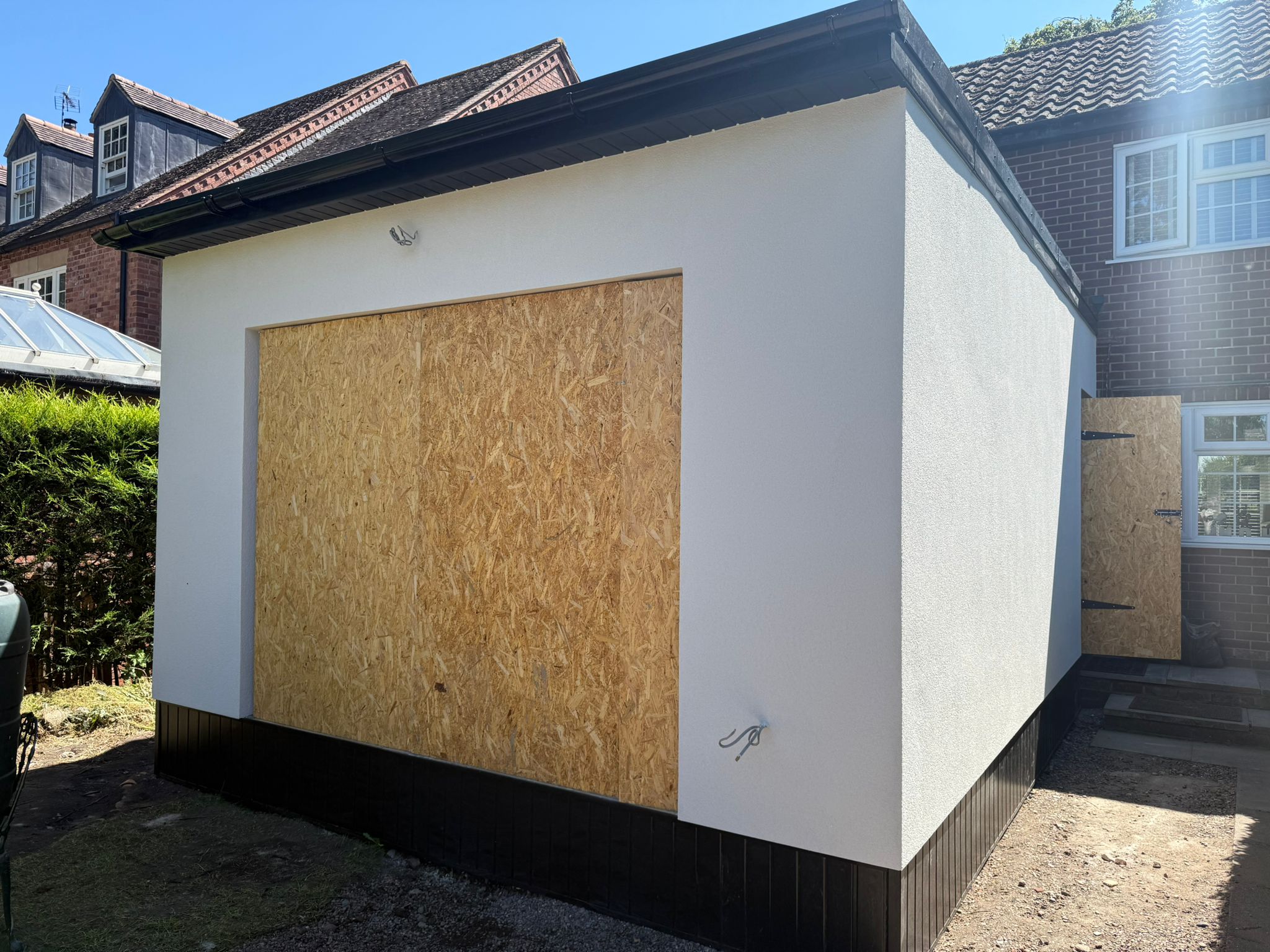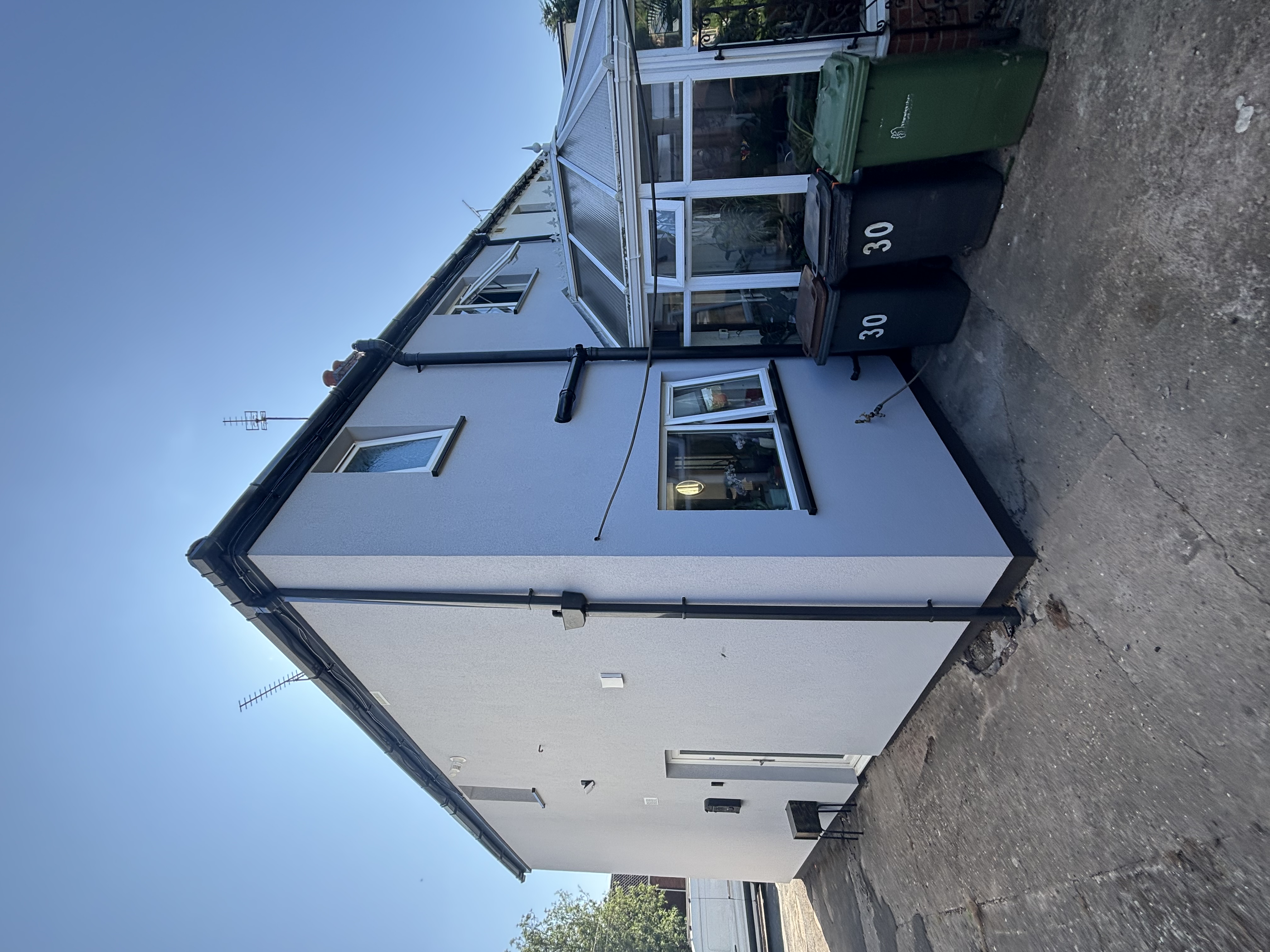
In homes across the UK, families are feeling the impact of rising energy prices and fluctuating weather conditions—wetter seasons and harsh winters all influence energy consumption and home comfort. For one homeowner in Warwick, installing external wall insulation transformed her property into a warmer and more energy-efficient home. Her decision not only improved her savings and comfort but also contributed to the UK’s Net Zero 2050 targets.
With sustainability now a pressing concern for all of us, the way we use energy at home has never been more important. Homes are responsible for nearly 20% of the UK’s carbon emissions, making them a critical area for change. From improving wall insulation and reducing heat loss to adopting renewable energy sources, small changes in our homes can make a big impact on the environment—and our wallets too. In our blog, ‘How UK Homeowners Can Contribute to Net Zero 2050 Goals’, we’ll explore how you can start making these impactful changes today.

Net Zero means balancing the amount of greenhouse gases released into the atmosphere with the amount removed, aiming to stop contributing to global warming and combat climate change.
The UK government has committed to achieving Net Zero by 2050, reducing greenhouse gas emissions by 100% compared to 1990 levels. As the first major economy to set this legally binding target, the UK is leading the way in tackling climate change.
Heating the UK’s 28 million homes was responsible for around 20% of the country’s greenhouse gas emissions in 2021, making residential heating a major contributor to CO2 levels. A significant portion of the UK’s housing stock consists of older properties with poor or no insulation, leading to excessive heat loss and higher energy consumption.
To achieve the Net Zero 2050 target, addressing these energy inefficiencies in homes is essential. Improving insulation and upgrading heating systems in these properties can drastically reduce emissions and make a meaningful contribution toward combating climate change.
Residential buildings contribute around 20% of the UK’s total carbon emissions, highlighting the pivotal role homeowners play in achieving the nation’s Net Zero 2050 targets. By adopting energy-efficient measures, homeowners can significantly reduce emissions, improve comfort, and transition to more sustainable living.
Upgrading home insulation is one of the most effective ways to reduce heat loss, lower energy consumption, and increase indoor comfort.
EWI involves adding an insulating layer to the exterior of solid walls, common in homes built before the 1920s. This method significantly reduces heat loss while upgrading the property's appearance. EWI is not just about cutting energy bills—it’s a great solution for homeowners looking to improve their property's efficiency, comfort, and aesthetics. By reducing heat loss, EWI helps homes rely less on fossil fuels, directly contributing to the UK’s Net Zero 2050 goals. Beyond energy savings, EWI shields walls from weather damage, prevents damp and mould, and even offers soundproofing benefits.
For homeowners concerned about cost, government schemes like ECO4 provide financial support to make this investment more accessible.
Benefits of EWI:

In an uninsulated home, approximately 25% of heat is lost through the roof, making it one of the most significant sources of energy waste. Installing loft insulation is a simple, cost-effective solution that can last over 40 years. For example, insulating the loft of a semi-detached house can save homeowners around £230 annually on energy bills, according to the Energy Saving Trust. Roof and loft insulation not only reduce heating costs but also improves overall comfort by maintaining a more consistent indoor temperature during colder months.
Floor insulation is particularly important in older homes with suspended timber floors, as these are prone to heat loss and draughts, making your home feel cold and uncomfortable. By insulating the ground floor, you can significantly reduce heat loss and make your home warmer and more energy-efficient.
The Energy Saving Trust estimates that insulating the floor of a detached house can save around £110 annually on energy bills. In addition to cost savings, floor insulation enhances comfort by reducing cold spots and draughts, especially in winter.
Implementing these insulation measures not only enhances comfort but also contributes to energy savings and supports environmental sustainability. By improving the energy efficiency of homes, the nation can make significant changes towards a sustainable future for generations to come.
Switching to energy-efficient heating systems is a crucial step for UK homeowners looking to reduce energy consumption, lower utility bills, and support the nation's Net Zero 2050 goals. Below are two key technologies that can make a significant impact:
Heat pumps are among the most efficient heating technologies available, achieving efficiencies of over 300%, meaning they produce more heat energy than the electrical energy they consume. By utilising renewable heat from the air (air-source heat pumps) or ground (ground-source heat pumps), these systems significantly reduce reliance on fossil fuels and lower greenhouse gas emissions.
While the initial installation cost can be higher, government grants and incentives, such as the Boiler Upgrade Scheme, are available to offset expenses. Heat pumps not only contribute to sustainability but also provide long-term savings on energy bills.
Smart thermostats allow homeowners to control their heating systems remotely via smartphones or other devices, optimising energy usage based on occupancy and preferences. These innovative devices help eliminate unnecessary heating, ensuring energy is only used when needed. By reducing waste, smart thermostats can lower energy bills and support energy conservation efforts.

By adopting these energy-efficient heating technologies, UK homeowners can significantly reduce national carbon emissions, enhance energy security, and achieve long-term cost savings—all while supporting the nation’s goal of reaching Net Zero emissions by 2050.
Upgrading windows is an important step for UK homeowners aiming to support Net Zero 2050 goals. Poorly insulated windows and doors are a major source of heat loss in homes, leading to increased energy use, higher energy bills, and unnecessary carbon emissions. In fact, up to 20% of a home’s heat can escape through single-glazed windows.
Double or triple-glazed windows drastically reduce heat loss by maintaining consistent indoor temperatures. As a result, they lower the need for heating in winter and cooling in summer, reducing energy consumption and carbon emissions.

A range of government support schemes is available to make energy-efficient upgrades more affordable, helping homeowners lower their energy bills while contributing to the UK's Net Zero 2050 goals.
One of the key schemes is the Energy Company Obligation (ECO), which provides funding to assist low-income households in reducing their energy costs. Eligible homeowners can receive support for upgrades such as new windows and doors, draught-proofing, insulation measures, and even boiler replacements. These initiatives aim to make energy-efficient solutions accessible to those who need them most.
By adopting energy-efficient technologies and taking advantage of available funding, homeowners can enjoy a more comfortable living environment, lower utility bills, and a reduced environmental impact. For tailored advice and additional support, check your local council’s website for region-specific programs.
Investing in these upgrades not only saves money in the long term but also plays a vital role in helping the UK achieve its sustainability targets.

Contact us today for a free consultation and learn how External Wall Insulation can help you create a net-zero-ready home. With more than 15 years of expertise in insulation services, we are dedicated to providing top-quality EWI systems, rendering and repairs, helping you create a more sustainable and energy-efficient home.

